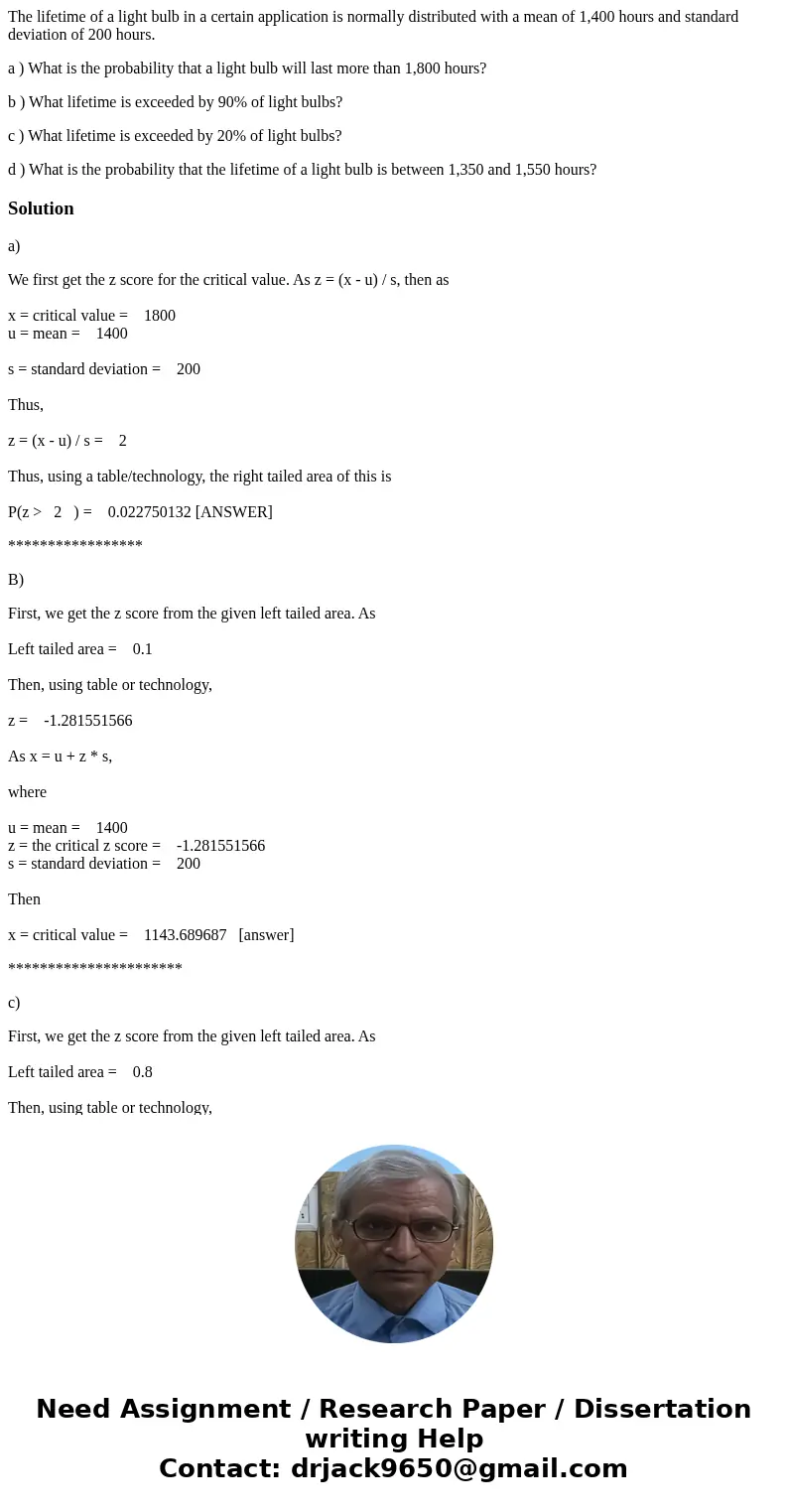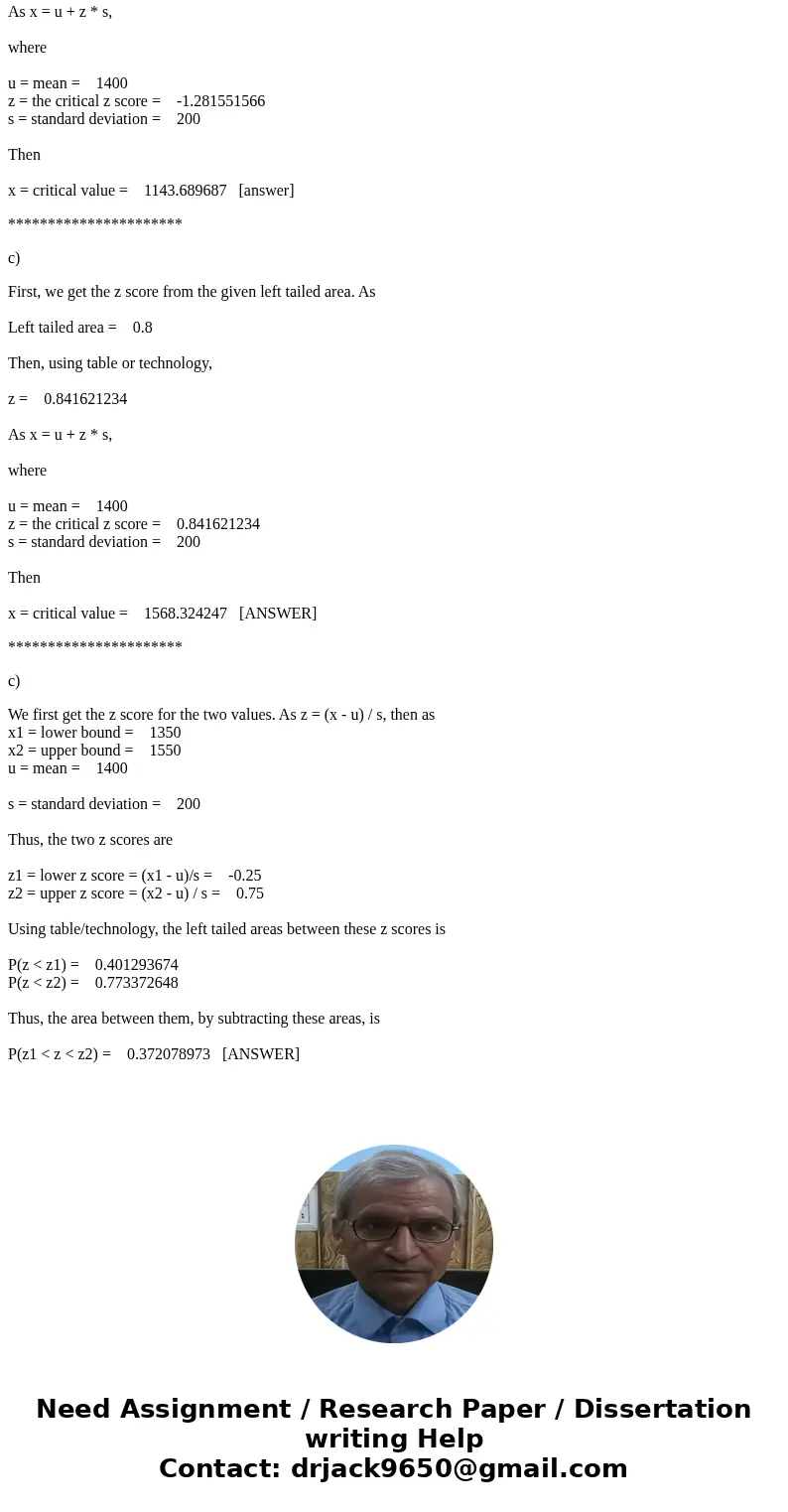The lifetime of a light bulb in a certain application is nor
The lifetime of a light bulb in a certain application is normally distributed with a mean of 1,400 hours and standard deviation of 200 hours.
a ) What is the probability that a light bulb will last more than 1,800 hours?
b ) What lifetime is exceeded by 90% of light bulbs?
c ) What lifetime is exceeded by 20% of light bulbs?
d ) What is the probability that the lifetime of a light bulb is between 1,350 and 1,550 hours?
Solution
a)
We first get the z score for the critical value. As z = (x - u) / s, then as
x = critical value = 1800
u = mean = 1400
s = standard deviation = 200
Thus,
z = (x - u) / s = 2
Thus, using a table/technology, the right tailed area of this is
P(z > 2 ) = 0.022750132 [ANSWER]
*****************
B)
First, we get the z score from the given left tailed area. As
Left tailed area = 0.1
Then, using table or technology,
z = -1.281551566
As x = u + z * s,
where
u = mean = 1400
z = the critical z score = -1.281551566
s = standard deviation = 200
Then
x = critical value = 1143.689687 [answer]
**********************
c)
First, we get the z score from the given left tailed area. As
Left tailed area = 0.8
Then, using table or technology,
z = 0.841621234
As x = u + z * s,
where
u = mean = 1400
z = the critical z score = 0.841621234
s = standard deviation = 200
Then
x = critical value = 1568.324247 [ANSWER]
**********************
c)
We first get the z score for the two values. As z = (x - u) / s, then as
x1 = lower bound = 1350
x2 = upper bound = 1550
u = mean = 1400
s = standard deviation = 200
Thus, the two z scores are
z1 = lower z score = (x1 - u)/s = -0.25
z2 = upper z score = (x2 - u) / s = 0.75
Using table/technology, the left tailed areas between these z scores is
P(z < z1) = 0.401293674
P(z < z2) = 0.773372648
Thus, the area between them, by subtracting these areas, is
P(z1 < z < z2) = 0.372078973 [ANSWER]


 Homework Sourse
Homework Sourse